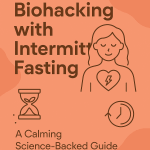A young mother asked me a question on Bayt.com whether pregnant women can fast during Ramadan. Since the holy month has begun, I thought it would be great to write a post about healthy eating tips during Ramadan.
Dr. Razeen Mahroof from Oxford says that “The underlying message behind Ramadan is self-discipline and self-control, “This shouldn’t fall apart at the end of the day.”
Helpful Nutritional Tips: Here are some healthy eating tips during Ramadan
- Go in for a balanced diet
- Your food intake should be simple and not differ too much from your normal diet.
-
Include foods from all the food groups.
- Milk and dairy products
- Fruits and veggies
- Bread, cereals, and potatoes
- Meat and fish
- Foods that contain fats or sugar.
-
Include complex carbohydrates because they burn energy slowly during the long fasting hours. Some examples include
- Wheat
- Barley
- Oats
- Millet
- Beans
- Wholemeal flour
-
Go in for fiber-rich foods that are digested slowly.
- Cereals
- Whole wheat
- Potatoes with skin on
- Seeds and grains
- Fruits and
- Green beans
- Avoid processed food it may contain MSG, heart-clogging oils, and sodium. Foods to avoid include fast-burning foods, foods that contain refined carbohydrates (sugar and white flour).
- Avoid foods such as chocolates, biscuits, and cakes, and Indian foods like Mithai. Chips and candies contain void nutrients and should not be used as a side dish.
- Limit or avoid caffeine-based drinks such as coffee, tea, and cola. They can dehydrate the body that too in these hot summer months. Caffeine is a diuretic, and it stimulates faster water loss through urination.
- Shop for locally produced fruits and veggies from farmer’s markets and grocery stores. Locally harvested foods have a fresh supply of flavorsome nutrients to nourish you during the long fast.
- If you eat wholesome food packed with nutrition, you’ll feel more satisfied.
- Choose bread from organic brown rice and whole grains.
- Replenish your body with hydration. Drink plenty of water to rehydrate your body. Fruit juices will also have a similar revitalizing effect.
- Include super hydrating watermelon and squash. You can make juices and soups out of these fruits and veggies.
- You can also go in for smoothies, especially the green smoothies. They are full of nutrients and can give a nutrient boost immediately.
- If you must have anything sweet, make it natural use real honey or natural raw cane sugar.
- You can drink lots of coconut water which works wonders for your skin.
- Avoid salty spices and condiments. They will make you thirsty afterward.
- Try to avoid deep-fried foods, high sugar and high-fat foods, high fat cooked foods such as oily curries, parathas, and greasy pastries. Fried foods are heavy in oil and make them hard to digest.
- Include chapattis made without oil, baked samosas and boiled dumplings, baked or grilled meat and chicken, milk-based sweets and puddings, and homemade pastry using just a single layer.
- Avoid using these cooking methods frying, deep-frying, and excessive use of oil. Try to use shallow frying and grilling or baking cooking methods.
- Avoid carbon monoxide poisoning while cooking. Cooking for a large number of people using oversized pots on gas stoves has been shown to cause carbon monoxide buildup in some homes. Carbon monoxide can make you unwell when breathed in, particularly in those not well-ventilated houses.
- Don’t use oversized pots on gas stoves, and don’t place foils around burners.
Can a pregnant woman fast during Ramadan?
If you are pregnant, you can make up missed fasts later or do fidyah. For example, you can make donations to a food bank.
According to a research study, pregnant women who fast during this holy month are likely to have smaller babies prone to learning disabilities in their adulthood.
Scientists in the US found that women were 10% less likely to give birth to a boy if they had fasted during Ramadan. The trend was clearest if fasting was done early in the women’s pregnancy and during the summer months.














